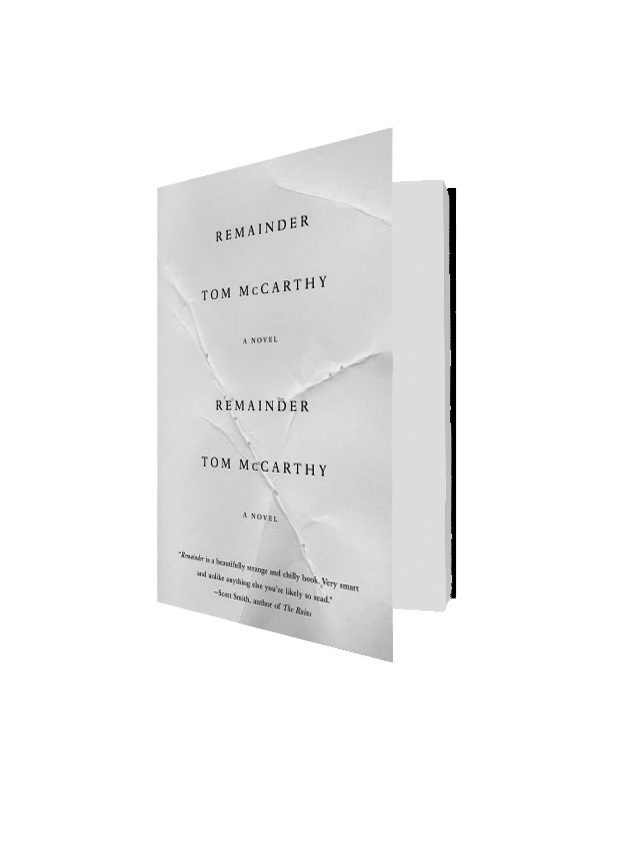Maurice Blanchot’s philosophical work posits the idea of unnameable trauma, of the impossibility of knowing the experience of death, and the sense that the traumatic event, along with its recording or retelling, has always already happened. The traumatic event can be both familiar and alienating—it seems familiar, “like a movie,” but immediately throws you into the unknown future of it having happened. For Blanchot, you can’t ever be witness to the actual moment of its happening. His challenging ideas demand a leap of faith from the reader, but to let his words seep in is to feel calmed in the face of the anxiety generated by the minutiae and attendant meaninglessness of everyday life. This sort of calm is the same reward offered by Remainder, a novel of astonishing genius in which an unnamed protagonist, who has suffered an unnameable accident, seeks to uncover real feeling again.
As recompense for his coma-inducing brain injury, the narrator receives a substantial payout from an unnamed party and decides to spend it re-creating—in full-scale—spaces and moments in time. He takes over a tenement block, a street in Brixton, and a warehouse near Heathrow in which to reenact events as slight as an encounter on a staircase, and as elaborate as a fatal shooting; they happen on the scale of Christo installations, but never knowingly become art. Rather, the narrator is trying to create situations in which he “feels” authentic, fluent, where things are both almost about to happen and at the same time have always already happened.
The story suggests that repetition is both a therapeutic coping mechanism and an inescapable side effect of trauma. In a recent interview with Raincoast Books, McCarthy cites Andy Warhol: “He said that from the moment he was shot for the rest of his life onwards he felt he was just watching TV. The only ‘real’ thing for PTSD [post-traumatic stress disorder] sufferers is the traumatic moment itself, which remains outside of proper memory, hence outside of all narrative, all representation.” Repeatedly trying to get to the floating sensation of that moment is what propels the everyman of Remainder. This incredibly beguiling premise leads to his reenactments, created as much from the information in police reports and witness accounts as from the narrator’s own experience.
Remainder demands to be read in one sitting. So deftly does McCarthy absorb you into the mind of his hero that you quickly feel you are living with him inside his head, noticing the color of spots on the pavement, the smell of food cooking in the apartment downstairs, the way your shirt moves as you brush past the edge of the kitchen counter. Not since Andrei Bely’s Petersburg has a book caught me in such...
You have reached your article limit
Sign up for a digital subscription and continue reading all new issues, plus our entire archives, for just $1.50/month.
Already a subscriber? Sign in





